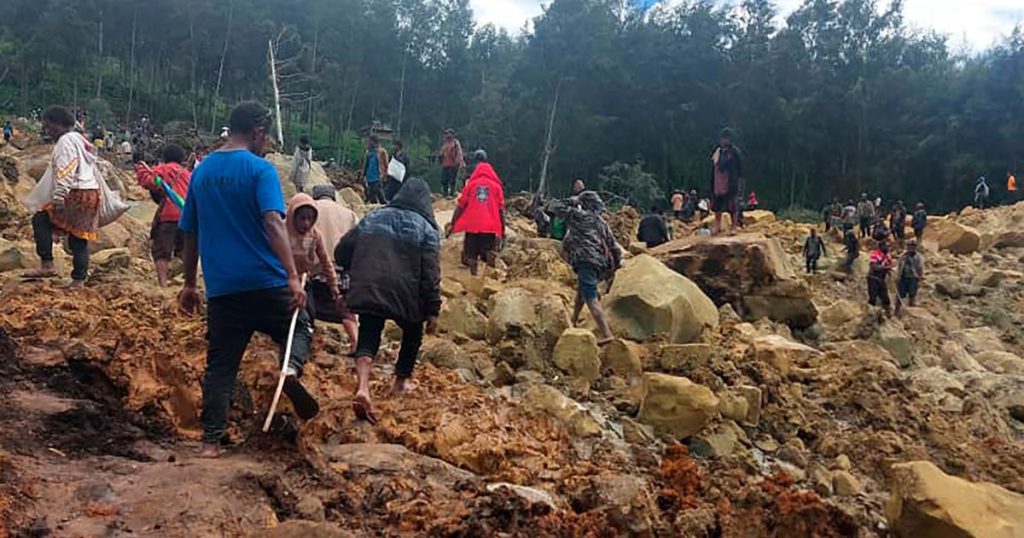A massive landslide in Papua New Guinea has resulted in a devastating death toll of over 670 people, according to the International Organization for Migration. The original estimate was much lower, but after further assessments by local officials, the numbers were revised to reflect the true extent of the tragedy. Emergency responders are facing challenges in their rescue efforts due to unstable terrain and tribal warfare in the region. The government of Papua New Guinea is considering requesting more international support to aid in the recovery process.
Crews have been working tirelessly to move survivors to safer ground and establish evacuation centers away from the debris caused by the landslide. The massive amount of earth and rubble covering the affected area is making it difficult to search for more survivors, with hopes fading as the days go by. Despite the dangers involved in working across the debris, efforts are ongoing to provide essential supplies to the affected village, including food and water. Tribal fighting in the area poses additional risks to those involved in the rescue operation.
Tribal clashes unrelated to the landslide resulted in the deaths of eight locals and the destruction of several homes and businesses in a nearby village. The ongoing tribal warfare in the region adds another layer of complexity to the already challenging situation. Moving survivors to stable ground and providing them with basic necessities like food, water, and shelter are immediate priorities for the authorities. The military is leading these efforts, with support from humanitarian organizations such as CARE International.
The exact number of injured and missing individuals is still being determined, as medical facilities and infrastructure were destroyed in the landslide. Despite the challenges, efforts are being made to provide medical assistance and support to those in need. The World Health Organization is mobilizing staff to assist in the response efforts, and the government is assessing the situation to determine if further international assistance is required.
Papua New Guinea, a diverse nation with a large population of subsistence farmers, is facing a monumental challenge in the aftermath of the landslide. The remote location of the affected village, situated at a high altitude, adds to the complexity of the rescue and relief efforts. The government officials, along with international partners such as the United States and Australia, are ready to provide additional support to help the country recover from this devastating natural disaster. The scale of the tragedy calls for a coordinated and swift response to address the needs of the affected communities and ensure their well-being in the days and weeks to come.


